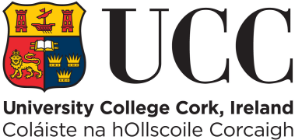The 12th biennal collective intentionality conference — july 13–25, 2020
Structuralism about Group Agency
Thriving philosophical disputes revolve around the question as to whether social groups can be agents. I argue that, in order to understand what turns social groups into agents, we need to grasp their metaphysical structure. The point is made by connecting Ritchie’s structuralist ontology (2018) with a widely received account of group agency proposed, among others, by List and Pettit (2011). I suggest that structuralism offers a helpful scheme for approaching group agency and that it provides the right template to individuate agentive properties of different kinds. In particular, following Ritchie’s view, I take social groups to be realizations of social structures, where structures are made social by their constitutive dependence on social factors. I go on to elaborate that, as social factors can be either internal or external to any particular group, agentive properties can be either intrinsic or extrinsic depending on whether the structure is based on internal or external social factors. This shows that since the received account analyzes group agency without relying on structuralist considerations, it cannot appreciate the difference between intrinsic and extrinsic properties and count properties of both kinds as essential. A structuralist account will then contribute to an improved understanding of group agency.
Discussion
4 thoughts on “Structuralism about Group Agency”
Leave a Reply
You must be logged in to post a comment.
Only ISOS members (with valid fee) can access to the discussion section. Visit ISOS website to subscribe.


Nice talk! I was trying to ask the question of what happens when, like now, external circumstances preclude formal groups from getting together to practice and prepare their activities. Is there a status between being a random collection doing music or sport informally because the group can not meet as a whole? In general, I like examples like sporting teams, orchestras, appellate court tribunals because they heighten problems with reducing group agency to individual action.
In the case of non-animal actions, the example of a stew is fun for analysis as it makes little sense to describe a good stew in terms of carrots, onions and salt only. When does the meal turn into a stew and not its individual constituents?
Belatedly looked at your talk and am sorry that I missed it. You have given me some avenues for research and I look forward to your future explorations.
Hi Fred,
thank you for your message. Actually, the discussion of my talk is scheduled for next Monday. You’re still in time for that! Hope to see you there
Oops and Good! Now to try to get my hands on a couple of your references in the middle of the Pandemic.